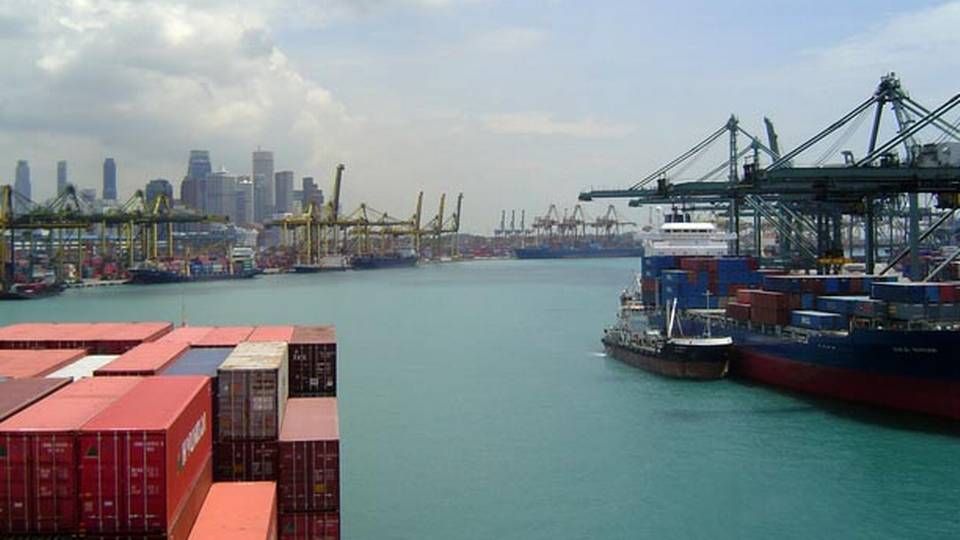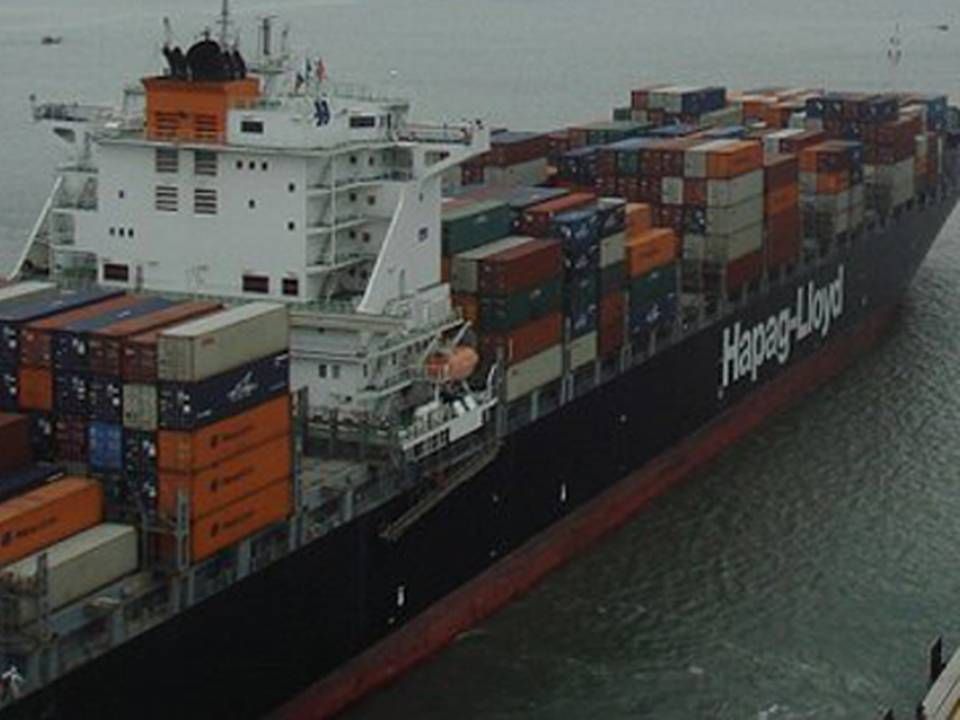These carriers are squeezed by HMM's meltdown

A long line of carriers around the world are being dragged down by the acute meltdown at Korean shipping conglomerate Hyundai Merchant Marine, which is only getting worse by the day. Some carriers have allegedly initiated negotiations with HMM after the carrier's senior executive team sent out a letter about a month ago to the carriers which have chartered vessels to the shipping group, threatening with the company's collapse if fixed contract prices are not significantly reduced.
This concerns up to 30 carriers, in particular from the container industry, market sources estimate in comments to ShippingWatch. A review of websites from the industry shows that well-known liners as Danaos, Navios, Capital, Zodiac and Eastern Pacific Shipping have contracts with HMM, and these companies are also among the names highlighted by sources as "exposed players." Greek Danaos is one of the world's largest owners of container ships. In 2014, 28 percent of the shipowner's chartering contracts were placed with HMM, followed by CMA CGM and another Korean shipping group Hanjin, Danaos writes on its homepage.
For the dry bulk segment, several shipowners including Japanese carriers as well as one Danish carrier feature on the list of Hyundai Merchant Marine's business partners. At the office of Ultrabulk in Denmark, just outside of Copenhagen, the controversial letter from HMM also landed in the mail box, CEO Per Lange confirms to ShippingWatch.
Ultrabulk currently has a single Panamax vessel on charter with HMM, and the development at HMM comes as no surprise to Per Lange. Stories have circulated for a long time that HMM is in a rough spot, he notes.
"We have a ship sailing for them, but we don't know much else, and we are waiting to see what happens," he says and declines to elaborate further.
HMM uses this number to put pressure on partners
The crisis for Hyundai Merchant Marine has developed so horrendously over the past 18 months that the Korean group saw no other option than to send a clear warning to carriers which have supplied tonnage to the company. In an interview with ShippingWatch this week, HMM pointed out that the current charter deals are 150 percent more expensive than the current market level. And if these are not "drastically cut down, the company cannot survive," the letter stated at the beginning of February.
Unlikely bankruptcy
ShippingWatch has spoken to a number of industry sources about the developments at Hyundai Merchant Marine. Many of them note that the company has consistently delivered the worst result when looking at the Top 20 shipping groups, and the company's debt seems to be exploding. Just like the other major Korean shipping group, Hanjin, HMM is listed on the stock exchange in Korea, and the past 18 months have seen the company's credit rating plummet severely, which is a clear indication of the company's big crisis as expressed in the letters to business partners with CEO Paik Hoon Lee as the sender.
The question is whether the shipowners will agree to lower the rates in the contracts which they legally have on their side. HMM sees itself as asking the business partners to take collective responsibility in order to achieve a win-win situation in the long term by renegotiating charter contracts. And the carrier is right to a certain extent. The alternative would be to meet in a Korean court, and then there would be even less funds to go around, as one source states.
"The moment that HMM files for receivership, less than half an hour would pass before people started arresting ships, containers, trucks or whatever they have out there. And when that happens to a global liner organization, it stops your operations. We are talking about a few hours and everything would be dead in the water, and then the company is done and everyone knows it, including banks and creditors. So when HMM sends out this threat that they will meet in court if the contracts are not reduced, everybody knows that this should be avoided."
Meanwhile, sources note that the Korean government will probably not let a bankruptcy become a reality for one of the country's largest companies. The Korean Development Bank (KDB), which is owned by the Korean government, hired accounting firm Deloitte to review HMM's restructuring plan and stressed that it would move forward with the so-called equity-swap - which is a restructuring of debt to equity - if the shipping company is successful in making big cuts in charter contracts with foreign carriers.
Highly vulnerable
But what can the carriers expect in return for a deal. One scenario could be to receive shares in HMM, which was the case for several carriers in relation to restructuring at Israeli ZIM and Chilean CSAV, which is now merged with Hapag-Lloyd.
Other sources also note that Hyundai is far from the only company which signed charter contracts when the market was very different and enjoyed booming rates. These are the circumstances in shipping. The particular thing about HMM is the vulnerability, sources say. If you enter a market with as high a gearing as HMM has, there is nothing to resist with. At the same time, the company faces "obvious challenges in operations. They are simply not good enough".
In the last four years, the container industry has been an elimination race. Everyone is under severe pressure, but Maersk Line, CMA CGM and presumably MSC have been better at generating profitability. Notably, Hyundai has about 30 percent of its total capacity on Asia-Europe, but not one vessel over 13,000 teu. This means that HMM has entered one of the most competitive services in the world where the game is definitely about the ability to have big ships and low unit costs - and this fact has only been emphasized in recent years with the many orders for vessels of 18,000 teu or more.
Too vital for Korea
Hyundai was among the companies which the Korean government identified last year as a so-called zombie company in need of extra attention. So the expectation is that strings will be pulled behind the curtain at the banks and that the government will provide support. A merger between Hanjin and Hyundai is still a possible outcome, even though the family-owned companies resist this option.
Hyundai is not alone in facing dire straits. Several of its business partners are supposedly struggling as well, although maybe not to the same degree. However, some are probably already having problems with banks, and so the ongoing negotiations between HMM and shipowners may end up becoming an actual problem between banks, which must approve the deals if a charter deal is to be reduced.
And a renegotiation of charter contracts at lower prices will most likely be the outcome of the negotiations, according to one source.
"I think that's the way it's heading. It would be a pretty stupid business move to play that card before you were prepared to take it all the way. The moment you play that card, there is no going back," the source says referring to the letter from HMM.
Read more about Hyundai Merchant Marine (HMM)
Media: HMM has vital backing from Korean bank
Hyundai Merchant Marine threatens partners with collapse
Related articles
Media: HMM has vital backing from Korean bank
For subscribers
SeaIntel: Container carriers are heavily indebted
For subscribers





















